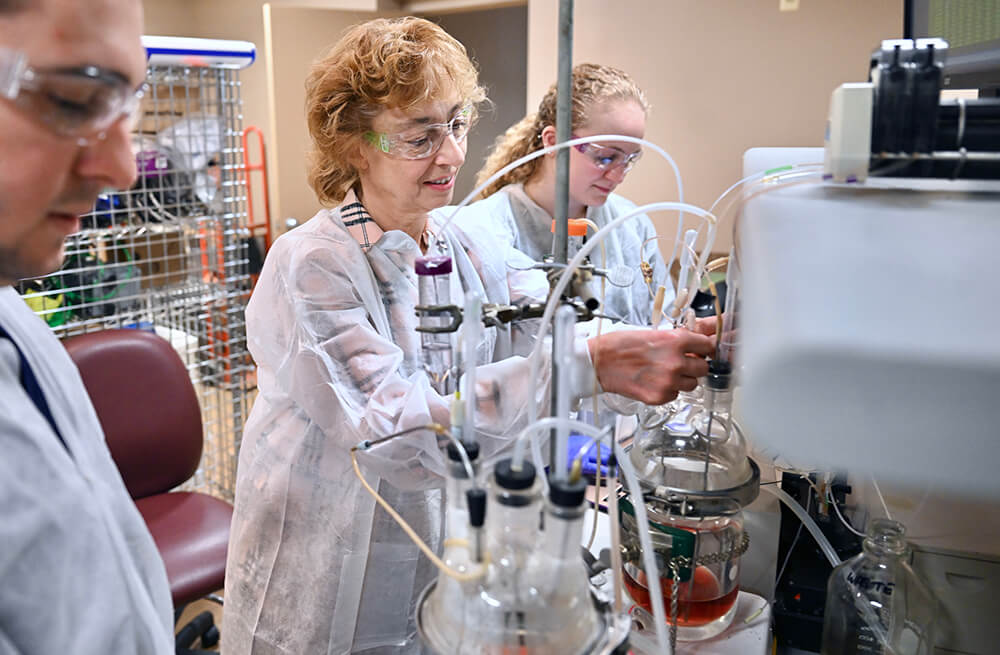They See Red
A Touro Internist and Researcher Inspires Her Medical Students to Study the Source of Life

Dr. Hanna Wollocko loves working with Touro students because, she says, they are curious, careful, confident and persevering.
“I am teaching them to be patient, very, very patient—the best quality, the highest quality in research is patience,” says Wollocko, an adjunct clinical associate professor of internal medicine at Touro College of Osteopathic Medicine (TouroCOM). Turns out, she adds, “they are teaching it to me, as I teach it to them.”
By anyone’s standard, Wollocko seems to have an abundance of patience beyond her role at Touro; she is president and CEO of OxyVita, Inc., whose mission has been to create a blood substitute that can be used safely and effectively as an alternative to blood transfusions. For 15 years, she has been conducting studies on blood substitutes, with OxyVita product, which is a polymeric hemoglobin. “We are close,” says Dr. Wollocko, who hopes OxyVita will soon enter clinical trials for FDA approval. “Again, patience and careful, precise research are key.”
Blood shortages are a constant and people are regularly asked by the Red Cross and other organizations to roll up their sleeves. The reason is that blood has a short shelf life. Regulatory statutes allow blood to be transfused for up to 42 days. Then it must be discarded.
But many of the more recent studies, as well as scientist and physician recommendations suggest that the ideal transfuse-by date is closer to 19 days, Wollocko says. “Side effects of using blood older than that can include stroke and heart attack, among other problems. It’s a risk we take when using older blood. We have to pray there are no side effects.”
That isn’t the only research that carries real-world medical and scientific benefits that the TouroCOM Middletown students turn their research skills to, boasts their professor and mentor. Take Vitamin C, as just one example: “The popular belief is that Vitamin C is critically beneficial to our organism, and we are treating it as a supplement in the form of candy,” she says. “But take too much, say three to five times the daily recommended dose, and the research actually shows it reduces the beneficial interaction with hemoglobin, which is the protein inside red blood cells that carries oxygen from the lungs to tissues and organs in the body.”
The students also work on researching and writing study findings for publications. “The Touro students are smart, and they have an enthusiasm to work toward making changes in today’s medicine, as well as improving and bringing innovations to medical treatments,” says Wollocko, a wife, mother and grandmother. “For example, in all the work we do, the oxygen-carrying capacity of hemoglobin could give us breakthrough treatments in diseases that blood transfusions aren’t applied to, such as sickle cell anemia. The students want to know everything about everything. They make me love the work even more than I do already because I see it through their eyes.”
Wollocko says many of her students want to be physicians who both see patients and do research. “As a researcher, as a doctor, as a teacher,” she says, “I could not ask for more.”

